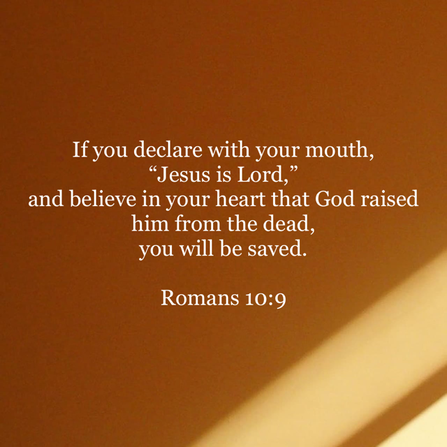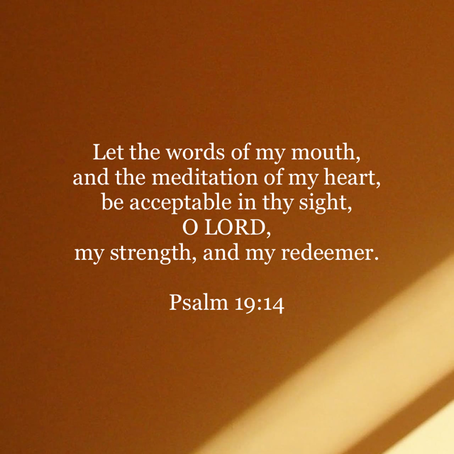|
Good morning!
We're glad you decided to join us for the second Sunday of Advent!
When we meet in person, we take some time to share our joys and concerns. If you have any prayer requests, you can add a comment on this lesson. When you are ready, use the prayer below, written by Henri J.M. Nouwen, to get started.
Lord Jesus,
Master of both the light and the darkness, send your Holy Spirit upon our preparations for Christmas. We who have so much to do and seek quiet spaces to hear your voice each day, We who are anxious over many things look forward to your coming among us. We who are blessed in so many ways long for the complete joy of your kingdom. We whose hearts are heavy seek the joy of your presence. We are your people, walking in darkness, yet seeking the light. To you we say, "Come Lord Jesus!' Amen.
Today's lesson is on Luke 1:8-20.
The Gospel of Luke is one of two Gospel accounts that describe Jesus' birth and its context. The other account comes from the Gospel of Matthew. Luke's account is distinct in at least two ways. First, Luke's account is interwoven with events regarding the birth of Jesus' cousin John, Both pregnancies were announced by an angel, were accompanied by great wonders and had prepared the people for God's salvation.
Second, Luke's account highlights the significance of these parallel birth narratives through depictions of worship. Mary, a heavenly host, and Simeon all give praise to God for his work. Luke's account opens by way of introducing Zechariah, the father of John and a priest in the division of Abijah. Zechariah and other priests descended from Aaron, the brother of Moses. Over the centuries, Aaron's descendants became numerous to the point that they could not all serve in the temple at the same time. King David had organized the priest into 24 divisions for services. The division required adjustment following a session of captivity. These divisions apparently continued into the New Testament era. Zechariah and his wife Elizabeth, also a descendant of Aaron, were “righteous in the sight of God” and blameless regarding obeying his commandment. The couple was without children due to their ages and Elizabeth's barrenness. The time had arrived for Zechariah and his priestly division to begin their service in the temple. The events that followed would take place against the backdrop of a priest performing his duties before the presence of God. The renovation and expansion of the temple of the Lord in Jesus' day began during the reign of Herod the Great. Herod's efforts in this regard took at least 46 years. He used the temple as a political and religious tool to gain support from the Jewish people. Twice daily, a priest would enter the outer sanctuary and burn incense on the altar. The rising smoke and the fragrant aroma represented the people's prayers going up to God. Because of the numerous priests, the custom of drawing lots determined the priest who would fulfill this duty. This was a way to determine God's will. The chosen priest would fill this role one time in his lifetime. We can imagine the sense of awe and reverence that Zechariah felt as he received his lot and entered the sanctuary. Because only the chosen priest entered the Holy Place where the altar of incense was located, the assembled worshipers were scattered throughout the temple's courts as the priest burned the incense. The people were restricted to the various outer courts because of God's requirements regarding who could enter that space. It was not as though the people were unholy – their acts of praising highlighted their commitment to the Lord. Most people were probably praying that God restore Israel and free them from their bondage to foreign empires. Then an angel of the Lord appeared to him, standing at the right side of the altar of incense. When Zechariah saw him, he was startled and was gripped with fear. The feeling of fear meant a sense of deep respect combined with sheer terror. Such a reaction was common when a person experienced a messenger of God. But the angel said to him, “Do not be afraid, Zechariah; your prayers have been heard. Your wife Elizabeth will bear your son and you are to call him John. He will be a joy and delight to you, and many will rejoice because of his birth." Feelings of joy and delight would replace feelings of fear. But the birth of this child would have a much wider impact on just this couple. Many other people would rejoice because of the role this child would have in declaring God's plan for his people. John would not bring the long awaited salvation to God's people, Instead, he would be a forerunner, preparing the way for that salvation. He is never drink wine or other fermented drinks. The Law of Moses described two specific situations when a person would make a vow of abstinence from alcohol. First, priests were to avoid alcohol during their service to God. Second, Israelites who had taken the vow of a Nazirite were also to avoid alcohol. Both priests and Nazirites were set apart from others in order to serve God and his people. Instead of being filled with alcohol, John would be filled with the Holy Spirit. A characteristic of God's prophets in Scripture was that they were filled with God's Spirit. John would serve as a prophet of God, even before he was born. While in his mother's womb, he “leaped for joy” in the presence of the unborn Savior. As God's messenger, John would call his own people, the children of Israel, to return to God. John would call people to turn from their wickedness and enter the life of God's salvation. John came in the type, the spirit and power of the prophet Elijah. John would confront his people's unfaithfulness as he called them to repentance. Zachariah questions Gabriel the angel how this could happen since he and his wife were well along in their years. The same angel would later appear to Mary to announce the pending arrival of the Son of God and the eternal rule of God on earth. The lowly virgin Mary accepted Gabriel's message to her with faith, humility, and rejoicing. However, the knowledgeable priest Zechariah responded to Gabriel's message with skepticism and doubts. Zechariah's skepticism toward Gabriel's message was called out. When God speaks through his messenger, there is no uncertainty with regard to that message. Instead, God's people are to submit to the message that brings good news. And now you will be silent and not able to speak until the day this happens, because you did not believe my words, which will come true at their appointed time. Gabriel's sign also came with mercy and promise; on the day that Gabriel's promises were fulfilled, Zechariah's sign would be lifted. At that point, Zechariah's unbelief would be replaced with praise to God for fulfilling his promise.
Conclusion – Rhythms of God's Plan
Zechariah expected that God would use someone exceptional, not ordinary, to work out his divine plan of salvation. However, God frequently calls the unassuming or the seemingly ill-equipped. Zechariah and his family were the latest iteration of God's working through people who least expected it. Though Zechariah served as a priest, he was skeptical that God would work through him and his wife. Of course we are not the parents of the forerunner of Christ, but Zechariah's story shows us that God will work through our lives as well. Will we doubt that God is serious when he calls us to fulfill his plan? Or will we believe and trust that God, who often has worked through ordinary people, will work through us? Prayer God of our salvation, we acknowledge that we sometimes doubt your work and that you would choose us. Strengthen our faith so that we can be ready when you call us. In Jesus' name, Amen. Questions
Benediction
Today's benediction is from the American Standard Version.
Next week's lesson will be on Luke 1:57-66, 76-79.
0 Comments
Leave a Reply. |
AuthorWe are a small, rural Presbyterian church in southwestern Pennsylvania. Archives
July 2024
Categories
All
|



 RSS Feed
RSS Feed